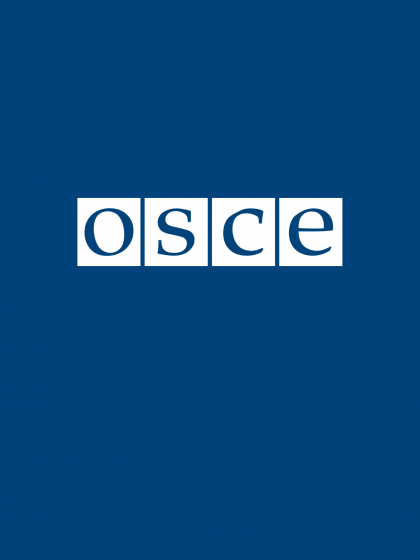Publications
Implementing Restorative Justice for Hate Incidents and Hate Crimes- a Practical Guide
Publishing date: 14 November 2025
Content type: Guide / manual / handbook
Where we are: OSCE Office for Democratic Institutions and Human Rights
What we do: Tolerance and non-discrimination
Publisher: Organization for Security and Co-operation in Europe
This guide shows how restorative justice can be used to address hate incidents and hate crimes.
OSCE Presence in Albania Newsletter| October 2025
Publishing date: 5 November 2025
Content type: Study / report
Where we are: OSCE Presence in Albania
Publisher: Organization for Security and Co-operation in Europe
Stories of courage, hope and resilience: Why the WPS agenda matters for peace and stability in the OSCE region and beyond
Publishing date: 30 October 2025
Content type: Brochure
Where we are: OSCE Secretariat
What we do: Gender equality
Publisher: Organization for Security and Co-operation in Europe
In the year marking the 25th anniversary of landmark resolution 1325, the following personal stories of courage, resilience and leadership from across the OSCE region highlight the essential contributions of women peacebuilders. They also illustrate the transformative impact of the Networking Platform’s initiatives in strengthening women’s ability to engage meaningfully across all three dimensions of security.
National Cyber Incident Classification Handbook
Publishing date: 29 October 2025
Content type: Guide / manual / handbook
Where we are: Transnational Threats Department
What we do: Cyber/ICT Security
Publisher: Organization for Security and Co-operation in Europe
This handbook is intended to guide participating States of the Organization for Security and Cooperation in Europe (OSCE) and other interested parties in developing and implementing a national cyber incident classification system.
Lingobarometer Moldova
Publishing date: 29 October 2025
Content type: Study / report
Where we are: OSCE High Commissioner on National Minorities
Publisher: Organization for Security and Co-operation in Europe
The Lingobarometer is a quantitative survey that explores language use, preferences, and attitudes across Moldova’s diverse regions, providing insights into linguistic identity, multilingual practices, and access to public services.
Project PROTECT — Technical Guide on Physical Security Considerations for Protecting Critical Infrastructure from Terrorist Attacks
Publishing date: 29 October 2025
Content type: Guide / manual / handbook
Where we are: Transnational Threats Department, OSCE Secretariat
What we do: Countering terrorism
Publisher: Organization for Security and Co-operation in Europe
Click here to view the whole factsheet collection available in Albanian (Shqip), Bosnian (Bosanski), English, Kazakh (Қазақша), Kyrgyz (Кыргызча), Macedonian (Македонски), Russian (Русский), Serbian (Srpski), Tajik (Tajik), Turkmen (Türkmen), and Uzbek (Oʻzbek).
Factsheet — Project PROTECT — Technical Guide on Physical Security Considerations for Protecting Critical Infrastructure from Terrorist Attacks
Publishing date: 29 October 2025
Content type: Factsheet
Where we are: Transnational Threats Department, OSCE Secretariat
What we do: Countering terrorism
Publisher: Organization for Security and Co-operation in Europe
Guidelines Handbook on Media Literacy and the Application of Professional Standards in the Sphere of Media
Publishing date: 28 October 2025
Content type: Guide / manual / handbook
What we do: Media freedom and development
Publisher: Organization for Security and Co-operation in Europe
The document was prepared by the National Council of Ukraine on Television and Radio Broadcasting with the assistance of the OSCE Support Programme in Ukraine. The publication offers practical recommendations, references, and materials designed to help journalists, media workers and media NGOs,
Tips on Organizing Inclusive Events: Suggested Checklist for Accessible Meetings in the OSCE Context
Publishing date: 27 October 2025
Content type: Guide / manual / handbook
Where we are: OSCE Chairpersonship
Publisher: Organization for Security and Co-operation in Europe
Safeguarding Media Freedom in the Age of Big Tech Platforms and AI
Publishing date: 6 October 2025
Content type: Guide / manual / handbook
Where we are: OSCE Representative on Freedom of the Media
Publisher: Organization for Security and Co-operation in Europe










